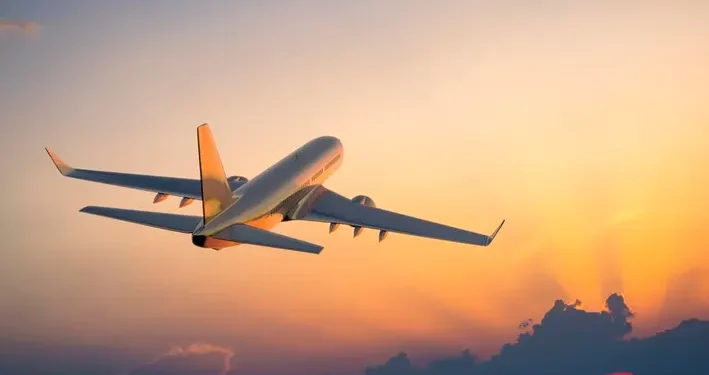Nigeria’s airline industry is in a state of turmoil as the persistent devaluation of the naira threatens the survival of several domestic carriers. The dire situation has prompted airline operators to sound the alarm, warning that some airlines could cease operations as early as March next year unless swift government intervention mitigates the soaring operating costs that are crippling the sector.
The Naira’s Freefall and Its Consequences
The alarming devaluation of the naira, which has now surpassed the exchange rate of N1,300 per US dollar, is having severe repercussions on the aviation industry in Nigeria. This sharp depreciation is driving up operating costs for domestic airlines, pushing some to the brink of extinction.
Aero Contractors’ CEO Expresses Concern
Ado Sanusi, the Managing Director and Chief Executive Officer of Aero Contractors, has been vocal about the impending crisis. Sanusi revealed that unless the industry receives timely assistance, some airlines may be forced to halt operations early next year. He pointed out that the holiday season, particularly Christmas, is currently providing a temporary respite due to high passenger traffic. However, come March, during the low season, the situation is expected to worsen significantly, making it challenging for airlines to cope with their elevated operating costs.
Sanusi emphasized that some domestic airlines are at risk of closing down by March due to decreased patronage and a reduction in the overall number of airlines operating within the country. While passenger traffic may remain relatively high, many travelers are expected to adjust the frequency of their air travel to adapt to the increasing costs.
Foreign Exchange Dependency and Government Intervention
Obiora Okonkwo, the Chairman and CEO of United Nigeria Airlines and also the spokesperson for Airline Operators of Nigeria (AON), shed light on the significant role foreign exchange plays in the aviation industry. He noted that approximately 99% of airline operations depend on foreign exchange, primarily the US dollar, which serves as the global currency for the aviation sector. Okonkwo stressed the urgent need for the Nigerian government to provide affordable fuel and access to foreign exchange at reasonable rates to alleviate the industry’s mounting financial challenges.
Okonkwo cautioned that if operating costs continue to rise, and airlines are compelled to pass these costs on to passengers, the outcome could be dire. Airlines, he emphasized, will not be able to sustain operations at a loss, and the inevitable consequence would be their forced closure.
Airfare Prices on the Rise
The escalating operating costs, particularly the rising cost of aviation fuel, which has surged to N1,000 per liter, and the devalued naira, currently trading at N1,200/$, are reflected in the increased prices of domestic airfares. Domestic airlines, including Air Peace and Dana Air, have adjusted their ticket prices upward, citing the economic realities they face.
For example, Air Peace has increased the price of a one-way ticket from Lagos to Abuja, with fares now ranging between N100,300 and N162,000, a significant hike from the previous range of N55,000 to N65,000. Similar price increases have been observed on routes like Lagos to Enugu, Lagos to Owerri, Lagos to Port Harcourt, and other significant routes.
These substantial airfare hikes have created concerns among passengers, with some routes now costing more than N100,000 for a one-way ticket, compared to previous prices.
Looking for Alternative Solutions
In light of the dire situation, Airline Operators of Nigeria have called on the government to explore alternative solutions for aviation fuel, such as sustainable aviation fuel (SAF) and low carbon available fuel. They believe that Nigeria has the potential to transition to alternative fuel sources, such as palm oil, which could help mitigate the industry’s financial challenges.
As the aviation industry grapples with increasing costs and the continuing devaluation of the naira, government intervention and innovative solutions are seen as critical in preserving the sector and preventing the potential closure of domestic airlines. The coming months will be crucial in determining the fate of Nigeria’s aviation industry, and stakeholders are anxiously awaiting measures to address the pressing issues.










